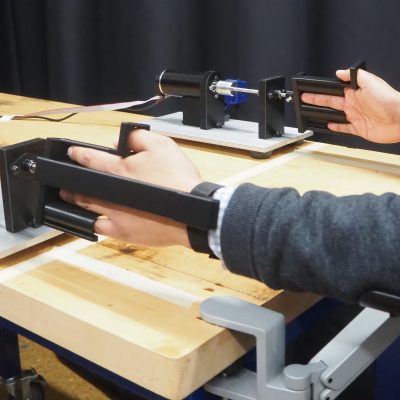
Kinesthetic Perception
The study of human-machine interactions is extremely useful in designing and improving the human experience in both real and virtual environments. Rendering a desired haptic experience through a device; however, can be challenging due to the complexity physical sensing mechanisms of the human body and the complex cognitive system involved in understanding haptic perception; compounded by the effect from other sensing modalities. This research is primarily focused on studying the psychophysics involved in human interaction to better understand how the human brain can be used in the control loop of haptic devices to either compensate for inertia of mechanical systems and/or simulation of required inertia to create a life-like experience.